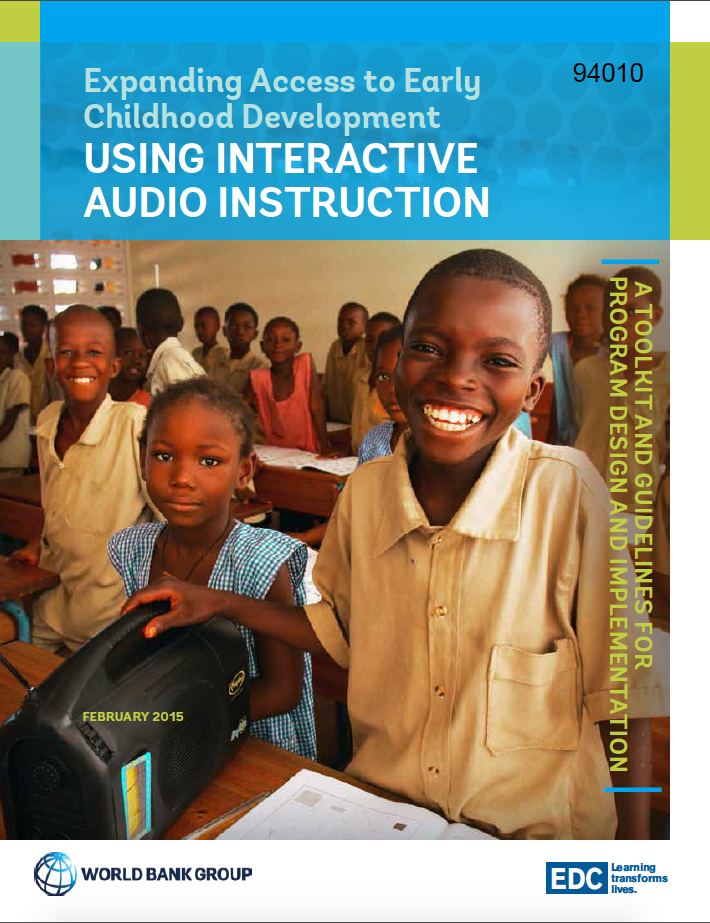
Interactive Audio Instruction (IAI) is a distance learning technology that can deliver low-cost, culturally appropriate education via radio or mobile audio technology. It is a highly effective tool to reach children who can be hard to reach through conventional programs, including the rural poor and children with disabilities. IAI can also be an effective form of service delivery in unstable and conflict-affected regions.
This document provides guidance for program designers and managers who may be interested in using IAI for early childhood development programming, it provides solid evidence for the viability of the IAI approach and outlines the process for designing and implementing an IAI program specifically for early childhood contexts – from initial start-up in a given community, to large scale expansion in a country. It highlights the main steps in the production cycle, the roles and responsibilities of government and communities, and provides useful tips for practitioners at each stage of the process.
The toolkit outlines the four phases in the IAI program cycle as they pertain to ECD programming in a facilitated group setting (early childhood classrooms, non-formal community learning centers, or other adult-led group childcare settings), with a particular focus on community-based early learning initiatives as a means of increasing access. Annexes provide more detail on processes, players and costs of an ECD IAI program, as well as a list of common pitfalls and means of avoiding them or minimizing their impact.


